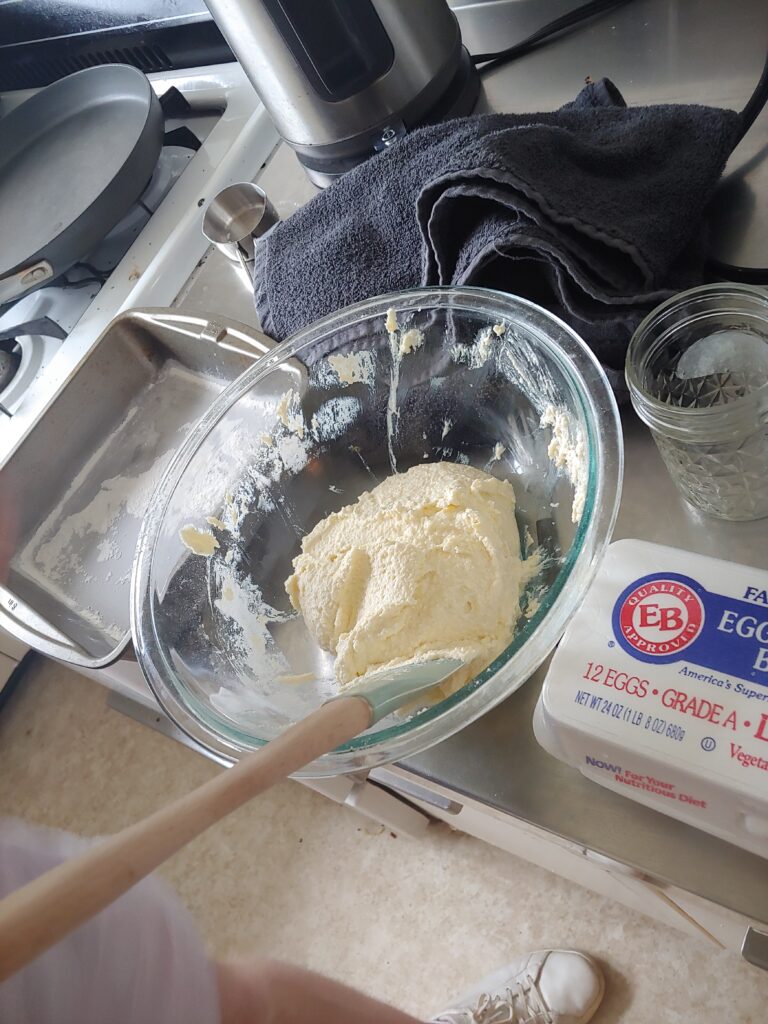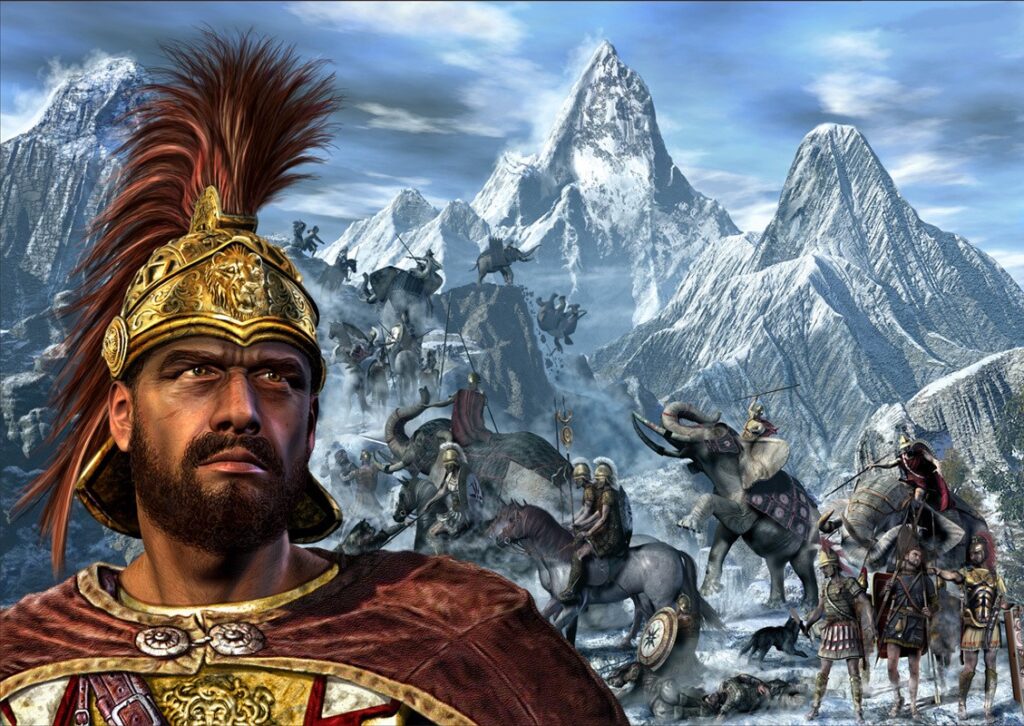Libum: A Roman (not) Cheesecake
With Liam Mears, Macy Brooks, and Nate Buchanan
When we chose this recipe, my first thought was: wow the Romans did not know how to cook. Libum was described to me as a sort of cheesecake, but it seemed like cheesecake in the same way that Michael Jordan did play for the Washington Wizards…but we all just kind of ignore that part of history. This recipe only had four ingredients: cheese, a singular egg, “runny honey” and some flour. Part of me was enthusiastic about such a simple recipe. Low cost and it probably wouldn’t take a lot of time out of my day. But then I remembered that I had to actually eat it once we were done…and those ingredients didn’t sound very flavorful.
Once we started getting to work on the libum, we decided to make some adjustments to the recipe. First we added a little salt. Why? No clue. But my classmates seemed to have more baking experience than I did so I had no problem letting them get creative. I was surprised that no one wanted to add more egg considering that this was a baked good that we were making and my first inclination in baking is always “eggs.” But like I said, I’m no expert so I didn’t question it. The second adjustment we made did make sense to my non-baking mind; we added some more flour.
By this point, we had already made a ball of the original quantities of ingredients (plus the salt). We proceeded to add the extra flour and mix it into our current ingredients. At this point, I was a little more hopeful for at least this mixture resembled something that would eventually become edible. Did it look like regular cake batter? Hell no, I thought at first. But I had to remind myself that it’s Ancient Rome we’re talking about. They didn’t add a bunch of sugar to everything like we do to our desserts. There were no Blueberry Poptarts, no Butterscotch Krimpets, no DC vegan chocolate cake. It was a simpler time with less available culinary materials. If Cato, Caesar, Cotta, and Crassus could consume such a crappy cake, then damn it, so could I. We finished up the “dough,” plopped it on a flour dusted pan, and placed it in the preheated oven. And then we waited.
After a while, our libum was ready. When it came out of the oven, I felt less like Michael Jordan on the Wizards and more like LeBron James on the Lakers (NOT this season); cautiously optimistic. We topped off the libum with a special honey sauce, and by special I mean mixing honey with water. My desire to try the thing declined a little as the water-honey reminded me of something yellow but much less pleasant than honey. We sat down to try it, and I have to say that I was pleasantly surprised! It was definitely not cheesecake, but reminded me of a soft bagel. And despite the questionable appearance of the water-honey, it did add a nice bit of flavor to the otherwise bland dish. All in all, this was a fun activity and I think helped to immerse us in the lives of Ancient Romans even more. We often think about how people of different places and times behave but food is quite literally what keeps any person alive and I was glad to get a little taste of what that’s like.


